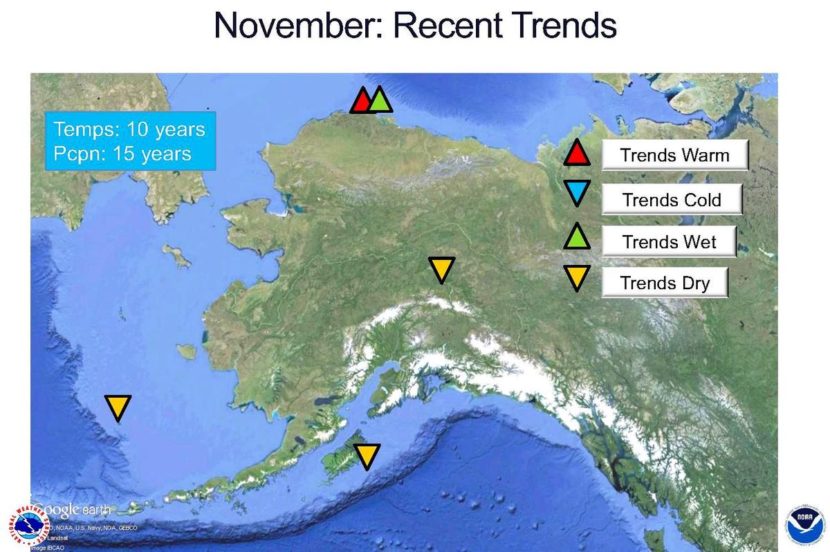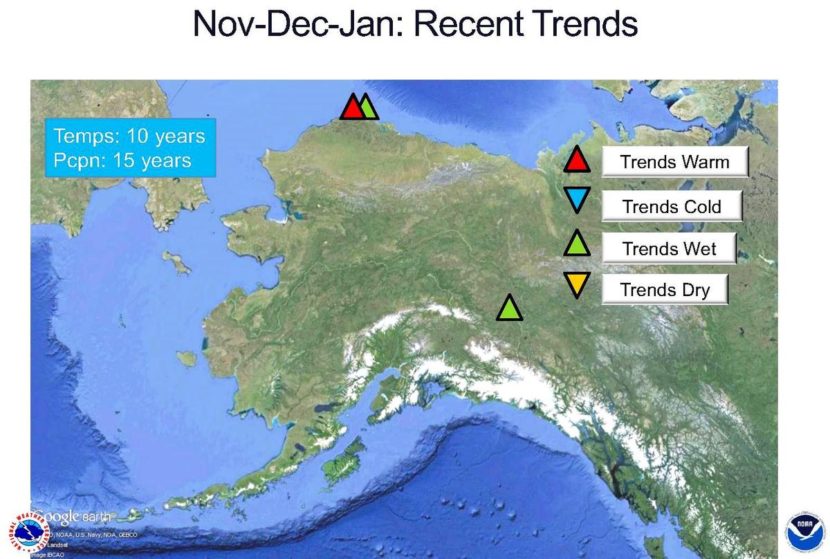
(Courtesy National Weather Service)
National Weather Service meteorologist Rick Thoman predicts more snow, more cold snaps – more normal winter weather – in Alaska this year now that the El Niño phase that helped make last winter so mild has moved on and been replaced by a La Niña.
At least, that’s what’s happened in previous years. But he says climate change has made forecasting in the Arctic more challenging.
“Well, that is the big problem with using the past to inform the future,” Thoman said.
Experts such as John Walsh, chief scientist with the University of Alaska Fairbanks’ International Arctic Research Center, say climate change always must be taken into consideration when analyzing weather in the far north.
“No weather event is completely independent of climate change,” Walsh said in an interview last year.
Thoman says the weather service has pretty good data collected over the past 65 years on the so-called Pacific Decadal Oscillation, or PDO, cycle that drives El Niños and La Niñas.
But he says meteorologists are relying on data from recent years because climate change is a more recent phenomenon that’s made older data, collected before the Arctic began to warm so quickly, less relevant.

(Courtesy National Weather Service)
“So it does shorten our record, and that’s bad, because then we wind up with fewer, say, La Niñas winters to develop these kinds of averages,” he said. “But the tradeoff is that we’re not including winters that are not really appropriate for what we have today.”
The size and location of a large body of warm water in the equatorial Pacific Ocean drive the transition from El Niño to La Niña. And Thoman says researchers are studying other phenomena that occur in lower latitudes that may play a role in La Niña. But he says in the Arctic, it’s the local factors that exert a more powerful influence on the region’s weather.
“The changes are happening so fast in the Arctic – with sea-ice loss, with increased time of no snow cover – that that’s really the driving feature. And the lower-latitude factors are being swamped those big cryosphere changes,” he said.
And because sea ice is sparse around Alaska, and snow comes later and melts sooner, Thoman says this winter is likely to be cooler and snowier than the past few winters. Still, he says it’ll be a relatively mild winter, compared with La Niña winters of years past, because the climate overall is warmer now.
